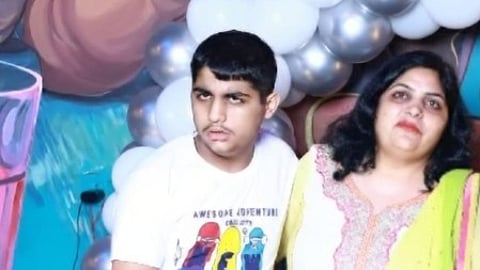
- Home
- NewsGram USA
- India
- न्यूजग्राम
- World
- Politics
- Opinion
- Entertainment
- On Ground
- Culture
- Lifestyle
- Economy
- Sports
- Sp. Coverage
- Misc.
- NewsGram Exclusive
- Jobs / Internships
- Interview

Greater Noida, Sep 13: A heart-wrenching incident shocked residents of a high rise apartment in Greater Noida West on Saturday morning when a woman and her young son died by suicide after jumping from the 13th floor, police said.
The incident happened in Ace City Society, located in the Bisrakh police station area.
The deceased have been identified as Sakshi Chawla (37), wife of Darpan Chawla, and their son Daksh (11).
According to police, the mother and child fell from the 13th floor in the morning hours, dying instantly on the spot.
Police teams rushed to the society immediately after receiving the information. The bodies were taken into custody and later sent for post-mortem after completion of the inquest proceedings.
During the inspection, police recovered a suicide note in which Sakshi expressed her desire to "leave the world." Initial findings suggest that the family had been under considerable mental stress.
Sources revealed that the young boy, Daksh, was suffering from a prolonged mental illness. Investigators believe Sakshi was extremely distressed over her son’s medical condition, and this constant pressure may have driven her to the drastic step.
Eyewitnesses said panic spread in the society immediately after the fall, and residents were left in a state of disbelief. Police officers, however, quickly took control of the situation to restore order.
“This tragic incident has shaken everyone in the society. Neighbours are deeply shocked at what happened,” said a police official.
Greater Noida police have launched a detailed investigation into the case. While preliminary reports indicate mental stress as the primary reason, officials said a clearer picture will emerge after the post-mortem report and further inquiries.
The double suicide has left the residents of the society mourning, highlighting once again the silent struggles many families endure behind closed doors.
(IANS/NS)
Also Read:
